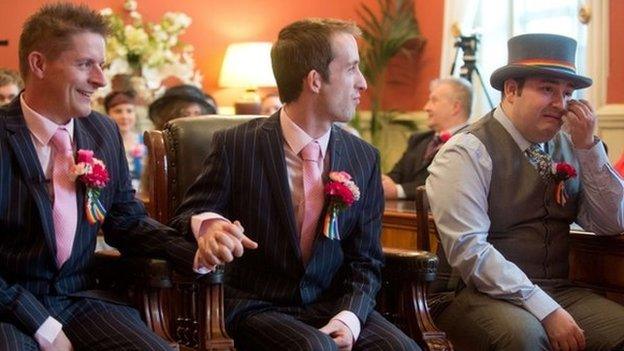Australia's 'forbidden' love: One couple's story
- Published
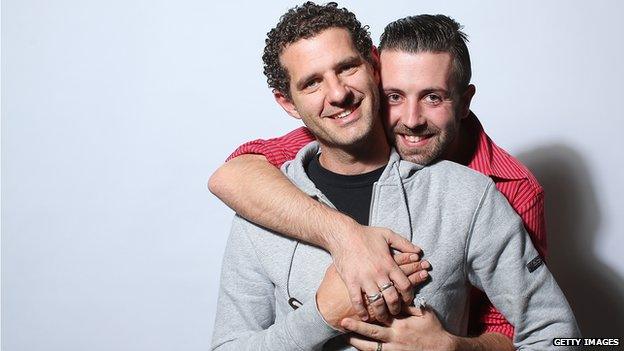
Anthony Gillespie (L) and Michael James want the same rights their straight friends enjoy
Michael James and Anthony Gillespie had mixed emotions about becoming the first male gay couple in Queensland to register their civil union.
In 2012, the Brisbane couple turned up in the rain at 07:00 outside the Office of Births, Deaths and Marriages the day a Civil Partnerships Act came into effect in Queensland.
The new law gave same-sex couples the right to enter into legally recognised civil unions and strengthened de facto legal rights such as next of kin access in hospitals.
The new laws did not recognise marriage for same-sex couples but the two men wanted to "be part of Queensland history" and hoped they were helping pave the road for marriage equality.
Kissing couples
"It was really beautiful to see couples - one after the other - lining up behind us," Mr James remembers.
"By the time the doors opened, there were a lot of people, a lot of media, a lot of politicians," he told the BBC, speaking from his Brisbane home.
"It was still only a civil union but we did see it as a step forward in marriage equality."
Instead, just months later, in one of its first moves, the incoming coalition state government watered down civil union laws by scrapping commitment ceremonies and replacing them with registered relationships.
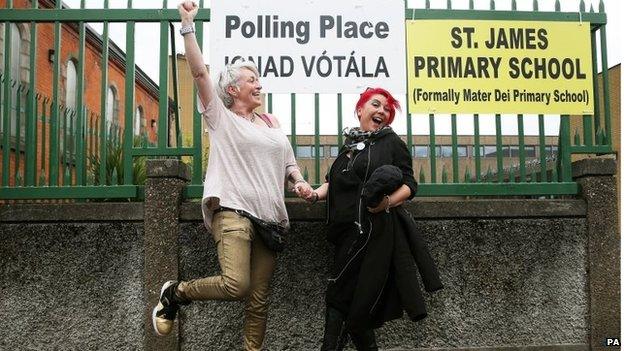
There was jubilation in Ireland's gay community after a referendum favoured legalising same-sex marriage
Mr James, 28, and Mr Gillespie, 32, have been together for nearly 11 years and are raising a child. Both come from "huge" families who have joined them in Gay Pride marches and support their wish to get married.
Irish lead
"Being from such big families, our parents have been able to see the beautiful milestones the rest of their kids go through," Mr James says.
"The day they got to see us become parents blew their minds, so there's deep sadness for them that we still can't get married like everyone else in the family can."
"Marriage equality is about seeing me able to do the same things as my siblings. I got to be there at my sister's wedding, at my mother's second wedding. It's not fair and not equal if I can't do the very same thing."
In the wake of last month's historic referendum in Ireland that favoured legalising same-sex marriage, the push for a change in Australia accelerated. But Mr James worries the issue is still "a political football".
There are now three bills before the Australian Parliament proposing to legalise gay marriage and there may yet be a fourth, with bipartisan sponsors. But thanks to strong opposition among some sections of the government, none are guaranteed to be voted on this year.
Mainstream approval
Mr James hopes support now coming from the majority of Australians and a shift in attitudes by some key MPs are signs things could change.
He wants to galvanise action from mainstream Australia to convince politicians that "history is on their side".
Public support in favour of changing the law was beginning to grow in 2004 when John Howard's conservative government amended the Marriage Act to specify marriage was between "a man and a woman".
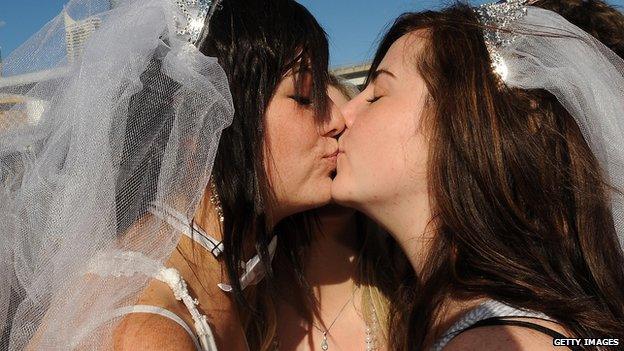
The gay community has been holding mass "illegal weddings" in their push for recognition
Mr James says many of his heterosexual friends are now uncomfortable during their own marriage ceremonies when the celebrant refers to "husband and wife".
"Some of them ask their guests to put their hands over their ears in that bit," he laughs.
Advertising campaign
He thinks politicians need to be lobbied just as much "by Tom and Susan and Barry and Josephine" as they are by gay activists.
To make that happen, he has launched a Marriage Equality for Australia campaign, external to raise A$100,000 ($77,000, £50,000) for a prime time television advertisement he hopes will convince heterosexual Australians to actively support marriage equality.
"We want to create something hard-hitting, heartfelt and human that makes people want to get off their lounge chairs and say 'I want to make a difference'," he says.
"I always saw Anthony as the man I wanted to spend the rest of my days with, to grow old with, and to marry. It's been my deep romantic wish from the very early days when we started dating.
It's been a dream I haven't been able to realise yet."
- Published10 June 2015
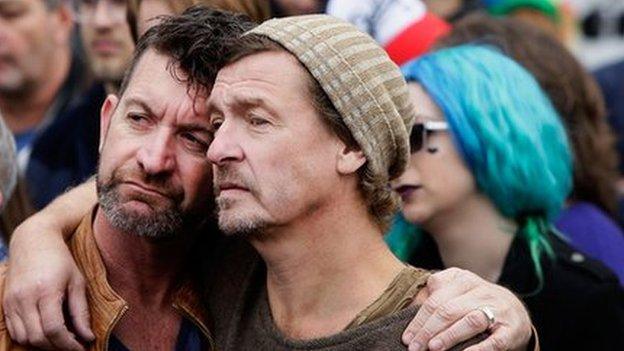
- Published23 May 2015
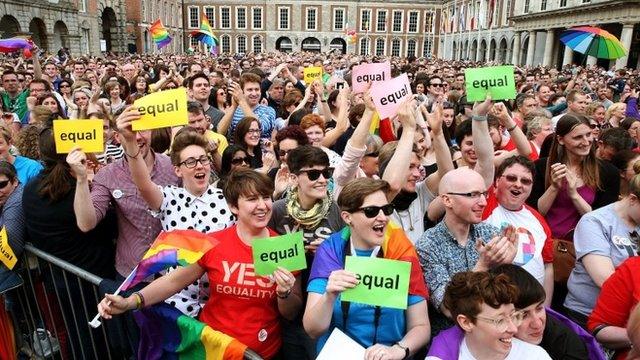
- Published17 April 2013
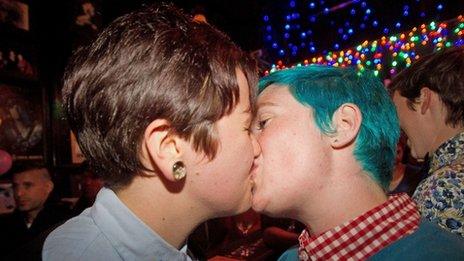
- Published29 March 2014
